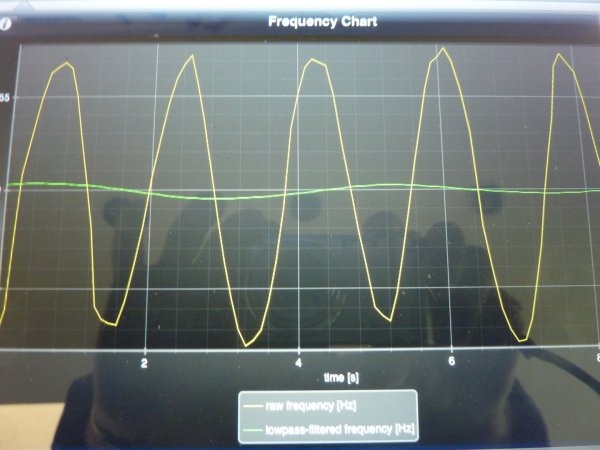The idea that DD turntables are continuously correcting their speed and thus never actually maintaining it is a myth that has been used for decades by proponents for, and adherents to other drive systems.
Most of the good Japanese vintage DD decks are quartz-locked. Now for those who might not regard the term 'locked' with any great significance here is a quote from the Japanese Victor Company:-
In other words, the quartz-locked motor is turning at precisely the correct speed at all times. The servo control is only activated under increased load or voltage drop and with a sophisticated positive and negative servo-control as invented by Victor, it is inaudible and undetectable yet those who claim to be able to hear this servo-control in action seem unable to provide any scientific evidence of its measurable existence.
View attachment 23110
Here is a Frequency Chart printout using the Feikert Speed App which shows the
analogue response (in real time) of the sine wave produced of the 3150Hz Test Tone on my Victor TT-101. If someone can point out the 'evidence' of the servo-control in action on this sine wave we may have a dialogue.
And most modern belt-drive decks with motor controllers are using (often sophisticated) servo-controls to correct their speeds in a less direct and less effective manner than any DD, so if you think you can hear the servo action of a direct drive but are oblivious to that of the Air Force 1...you must have selective hearing abilities.
Harry Weisfeld of VPI has been manufacturing largely belt-drive turntables for over 40 years but is not as inflexible as some....





